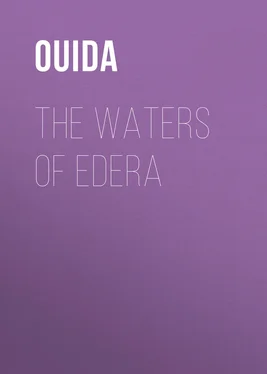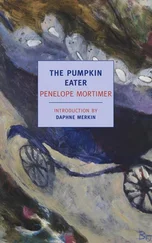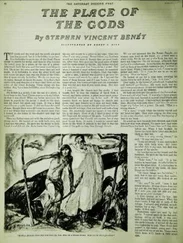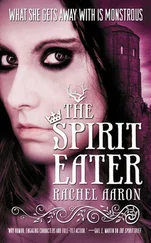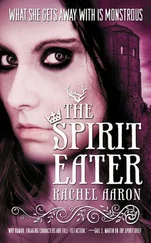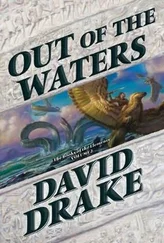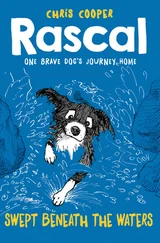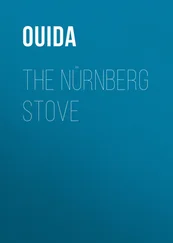Ouida - The Waters of Edera
Здесь есть возможность читать онлайн «Ouida - The Waters of Edera» — ознакомительный отрывок электронной книги совершенно бесплатно, а после прочтения отрывка купить полную версию. В некоторых случаях можно слушать аудио, скачать через торрент в формате fb2 и присутствует краткое содержание. Жанр: foreign_prose, literature_19, foreign_antique, на английском языке. Описание произведения, (предисловие) а так же отзывы посетителей доступны на портале библиотеки ЛибКат.
- Название:The Waters of Edera
- Автор:
- Жанр:
- Год:неизвестен
- ISBN:нет данных
- Рейтинг книги:3 / 5. Голосов: 1
-
Избранное:Добавить в избранное
- Отзывы:
-
Ваша оценка:
- 60
- 1
- 2
- 3
- 4
- 5
The Waters of Edera: краткое содержание, описание и аннотация
Предлагаем к чтению аннотацию, описание, краткое содержание или предисловие (зависит от того, что написал сам автор книги «The Waters of Edera»). Если вы не нашли необходимую информацию о книге — напишите в комментариях, мы постараемся отыскать её.
The Waters of Edera — читать онлайн ознакомительный отрывок
Ниже представлен текст книги, разбитый по страницам. Система сохранения места последней прочитанной страницы, позволяет с удобством читать онлайн бесплатно книгу «The Waters of Edera», без необходимости каждый раз заново искать на чём Вы остановились. Поставьте закладку, и сможете в любой момент перейти на страницу, на которой закончили чтение.
Интервал:
Закладка:
"Never talk of death, mother," he said, whenever she spoke of these things. "Death is always listening; and if he hear his name he taps the talker on the shoulder, just to show that he is there and must be reckoned with."
"Not so, my son!" replied Clelia Alba, with a sigh. "He has every soul of us written down in his books from the time we are born; we all have our hour to go and none of us can alter it."
"I do not believe that," said Adone. "We kill ourselves oftentimes; or we hasten our end, as drunkards do."
"Did your father hasten his end?" said his mother. "Did not some one break that olive branch? It was not the tree itself, though the Ruscino folks would have it cut down because they called it a felon."
"Was it not the devil?" said Adone.
He believed in the devil, of course, as he had been taught to do; and had he not as a child met the infernal effigy everywhere—in marble, in stone, in wood, in colour, in the church and outside it, on water-spout and lamp-iron, and even on the leaves of his primer? But it seemed to him that the devil had " troppo braccia " given him, was allowed too long a tether, too free a hand; if indeed he it were that made everything go wrong, and Adone did not see who else it could be. Here, in the vale of Edera, all the world believed in Satan as in holy water, or in daily bread.
Clelia Alba crossed herself hastily, for she was a pious woman.
"We are talking blasphemy, my son," she said gravely. "Of course there is the good God who orders the number of our days for each of us, and is over us all."
Adone was silent. To him it seemed doubtful. Did the good God kill the pretty little children as the butcher in a city killed his lambs? But he never contradicted or vexed his mother; he loved her with a great and tender affection. He was less ignorant than she was, and saw many things she could not see; he was, as it were, on a hilltop and she down in a valley, but he had a profound respect for her; he obeyed her implicitly, as if he were still a child, and he thought the world held no woman equal to her.
When he went back to his house that evening, with his great net on his shoulder and swinging in one hand some fresh-water fish, he looked at the stone bench, which was empty of all except some fallen rose-leaves, and then anxiously, questioningly, in the face of his mother.
So he answered the regard.
"The girl is gone to Gianna's custody," she said rather harshly. "Gianna will give her her supper, and will let her sleep in the loft. With the morning we will see what we can do for her, and how she can be sped upon her way."
Adone kissed her hands.
"You are always good," he said simply.
"I am weak," answered his mother, "I am weak, Adone; when you wish anything I consent to it against my judgment."
But she was not weak; or at least only weak in the way in which all generous natures are so.
On the morrow Nerina was not sped on her way. The old woman, Gianna, thought well of her.
"She is as clean as a stone in the water," she said; "she has foul-smelling rags, but her flesh is clean. She woke at dawn, and asked for something to do. She knows nought, but she is willing and teachable. We can make her of use. She has nowhere to go. She is a stray little puppy. Her people were miserable, but they seem to have been pious folks. She has a cross pricked on her shoulder. She says her mother did it when she was a babe to scare the devil off her. I do not know what to say; she is a poor, forlorn little wretch; if you like to keep her, I for my part will see to her. I am old: it is well to do a good work before one dies."
Gianna was an old woman, half house-servant, half farm-servant, wholly friend; she had lived at the Terra Vergine all her life; big, gaunt, and very strong, she could do the work of a man, although she was over seventy years of age; burnt black by the sun, and with a pile of grey hair like the hank of flax on her distaff, she was feared by the whole district for her penetrating glance and her untiring energy. When Gianna was satisfied the stars had changed their courses, said the people, so rare was the event; therefore, that this little wanderer contented her was at once a miracle and a voucher indisputable.
So the child remained there; but her presence troubled Adone's mother, though Nerina was humble as a homeless dog, was noiseless and seldom seen, was obedient, agile, and became useful in many manners, and learned with equal eagerness the farm work taught her by Gianna, and the doctrine taught her by Don Silverio, for she was intelligent and willing in every way. Only Clelia Alba thought, "Perhaps Gianna's good heart misleads her. Gianna is rough; but she has a heart as tender at bottom as a ripe melon's flesh."
Anyhow, she took her old servant's word and allowed the child to remain. She could not bring herself to turn adrift a female thing to stray about homeless and hungry, and end in some bottomless pit. The child might be the devil's spawn. No one could be sure. But she had eyes which looked up straight and true, and were as clear as the river water where it flowed over pebbles in the shade. When the devil is in a soul he always grins behind the eyes; he cannot help it; and so you know him; thus, at least, they thought at Ruscino and in all the vale of Edera; and the devil did not lurk in the eyes of Nerina.
"Have I done right, reverend sir?" asked Clelia Alba of the Vicar of Ruscino.
"Oh, yes—yes—charity is always right," he answered, unwilling to discourage her in her benevolence; but in his own mind he thought, "The child is a child, but she will grow; she is brown, and starved, and ugly now, but she will grow; she is a female thing and she will grow, and I think she will be handsome later on; it would have been more prudent to have put some money in her hand and some linen in her wallet, and have let her pass on her way down the river. The saints forbid that I should put aloes into the honey of their hearts; but this child will grow."
Clelia Alba perceived that he had his doubts as she had hers. But they said nothing of them to each other. The issue would lie with Time, whom men always depict as a mower, but who is also a sower, too. However, for good or ill, she was there; and he knew that, having once harboured her, they would never drive her adrift. Clelia Alba was in every sense a good woman; a little hard at times, narrow of sympathy, too much shut up in her maternal passion; but in the main merciful and correct in judgment.
"If the child were not good the river would not have given her to us," said Adone to her; and believed it.
"Good-day, my son," said the voice of the Vicar, Don Silverio Frascara, behind him, where Adone worked in the fields. "Where did you find that scarecrow whom your mother has shown me just now?"
"She was in the river, most reverend, dancing along in it, as merry as a princess."
"But she is a skeleton!"
"Almost."
"And you know nothing of her?"
"Nothing, sir."
"You were more charitable than wise."
"One cannot let a little female thing starve whilst one has bread in the hutch. My mother is a virtuous woman. She will teach the child virtue."
"Let us hope so," said Don Silverio. "But all, my son, do not take kindly to that lesson."
"What will be, will be. The river brought her."
He credited the river with a more than human sagacity. He held it in awe and in reverence as a deity, as the Greeks of old held their streams. It would have drowned the child, he thought, if she had been an evil creature or of evil augury. But he did not say so, for he did not care to provoke Don Silverio's fine fleeting ironical smile.
A goatherd who passed some few days later with his flock on his way to the mountains recognised the little girl.
"You are Black Fausto's daughter," he said to her. "Is he dead? Eh, well, we must all die. May his soul rest."
Читать дальшеИнтервал:
Закладка:
Похожие книги на «The Waters of Edera»
Представляем Вашему вниманию похожие книги на «The Waters of Edera» списком для выбора. Мы отобрали схожую по названию и смыслу литературу в надежде предоставить читателям больше вариантов отыскать новые, интересные, ещё непрочитанные произведения.
Обсуждение, отзывы о книге «The Waters of Edera» и просто собственные мнения читателей. Оставьте ваши комментарии, напишите, что Вы думаете о произведении, его смысле или главных героях. Укажите что конкретно понравилось, а что нет, и почему Вы так считаете.
